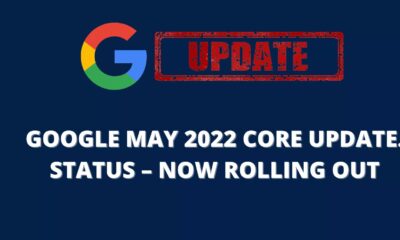- Top ChatGPT Alternatives for 2025: Revolutionizing AI Conversations
- Are You Ready to Rule Your Niche? Building Topical Authority in SEO, Explained
- Supercharge Your Business with a Google Business Profile
- Unlock the Power of Ecommerce SEO: 11 Expert Ecommerce SEO Tips
- How To Fix Suspended GMB Listing? Reinstate My GMB Listing
- Top ChatGPT Alternatives for 2025: Revolutionizing AI Conversations
- Are You Ready to Rule Your Niche? Building Topical Authority in SEO, Explained
- Supercharge Your Business with a Google Business Profile
- Unlock the Power of Ecommerce SEO: 11 Expert Ecommerce SEO Tips
- How To Fix Suspended GMB Listing? Reinstate My GMB Listing
- Top ChatGPT Alternatives for 2025: Revolutionizing AI Conversations
- Are You Ready to Rule Your Niche? Building Topical Authority in SEO, Explained
- Supercharge Your Business with a Google Business Profile
- Unlock the Power of Ecommerce SEO: 11 Expert Ecommerce SEO Tips
- How To Fix Suspended GMB Listing? Reinstate My GMB Listing

To sort its search results, Google uses a machine-learning system known as the RankBrain. Ask how it works and fits into the overall classification scheme of Google? This is what RankBrain we care about.
First of all, there is Bloomberg ‘s story has hit the news of RankBrain. Secondly, Google has now provided additional information directly to Search Engine Land. Thirdly, our knowledge and best assumptions where Google does not respond. We will clarify where these sources get used as necessary as well as general background information.
Table of Contents
ToggleWhat Is RankBrain?
The name of Google is RankBrain, which has been reported by Bloomberg and confirmed to us by Google, for a master-learning artificial intelligence system to help in search results.
What Is Machine Learning?
Machine learning is where a computer teaches itself to do something, rather than to be shown in detail by people.
Real artificial intelligence, or shortly AI, is where a computer can be as smart as a person, at least as a way to learn from and build on what it knows and make new links.
Naturally, real AI is only available in science fiction novels. AI is used in practice for computer systems designed to learn and connect.
How is AI different from machine learning? It seems to us that they are quite synonymous with RankBrain. You may also hear them used interchangeably or understand the type of artificial intelligence approach used in machine learning.
So, Is Rankbrain A Part Of Humming Bird?
Hummingbird is just like a car with an overall engine of the overall search algorithm. The engine itself can consist of different components, including the petrol filter, the fuel pump, the heat sink, etc. Likewise, Hummingbird includes several pieces, one of which is RankBrain.
Hummingbird also has sections known to SEO space names such as Panda, Penguin, and Payday for countering spam; Pigeon built to boost local results; Top Heavy for removing ad-laden sites; Mobile Friendly for the advantage of cell phone sites.
And The “Signals” Google Uses For Classification?
Signals are what Google uses to assess how web pages are classified. It reads the words on a web page, for example, so words are a symbol. It could be another warning that gets noted if any terms are in bold. The formulas used as PageRank provide a page with a PageRank signal value. The signal is registered when a page gets marked as mobile, which is mobile friendly.
The various sections of the Hummingbird algorithm process all these signals to find out which Google pages show in response to different searches.
And The Third-Largest Signal Is Rankbrain?
That’s correct. This new system has become the third-largest factor in Google’s website classification from nowhere. In the report in Bloomberg:
RankBrain is one of the ‘hundreds’ of signals to an algorithm which decides the search results and where they appear on Google’s search page, says Corrado. Rankbrain became the third-largest signal that contributed to a search query in the few months it had been deployed, he added.
What Are The Most Important Signals, First And Second?
Google wouldn’t tell us when this story was first published. This was our assumption:
I believe that links continue to be the primary signal, as Google counts these links in the form of votes. The “broken ballot box” used by Google & Bing article of the past. I’ve covered it in my links.
The second most important signal, I think, is “words” where words would all include the words on the page, the way Google interprets the words people enter in the search box outside the analysis by RankBrain.
We know that RankBrain is part of the general Hummingbird algorithm in particular as the article in the Bloomberg article states, like the general algorithm itself, Rank Brain does not regulate all searches.
This has proved quite right. The first two factors were content and link revealed by Google in March 2016.
What Is Rankbrain Doing Exactly?
I collect RankBrain via e-mail from Google, mainly for the interpretation of searches that people make for pages that may not have the exact words searched.
Yeah, Google has found pages beyond precisely how long anyone enters. Years and years ago, Google may not have seen pages that read “shoes” because they are two different technical terms if you had entered something like “shoe.” For example. Nonetheless, ‘stopping’ made it easier for Google to realize that shoes are a shoe variant, just as ‘rolling’ was the ‘running’ variation.
Google even had smarts interchangeable, and you could understand if you were looking for “snack,” you meant “running shoes.” You might also get some intellectual cleverness and that you might realize there are pages about the technology company “Apple” versus the fruit “apples.”
